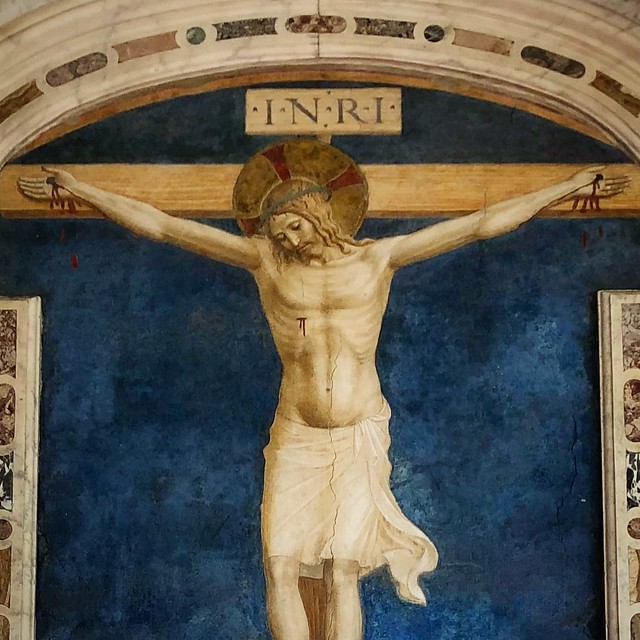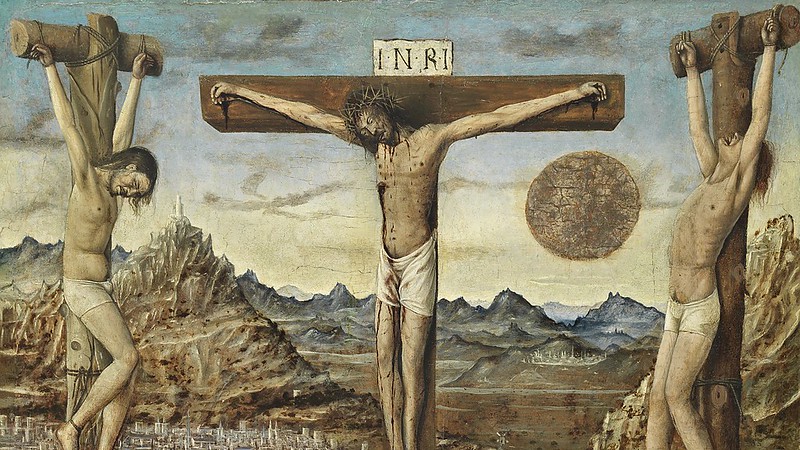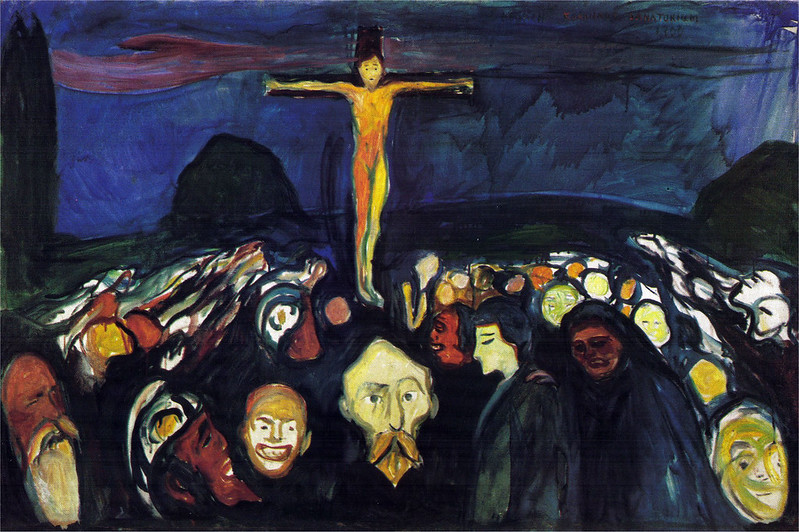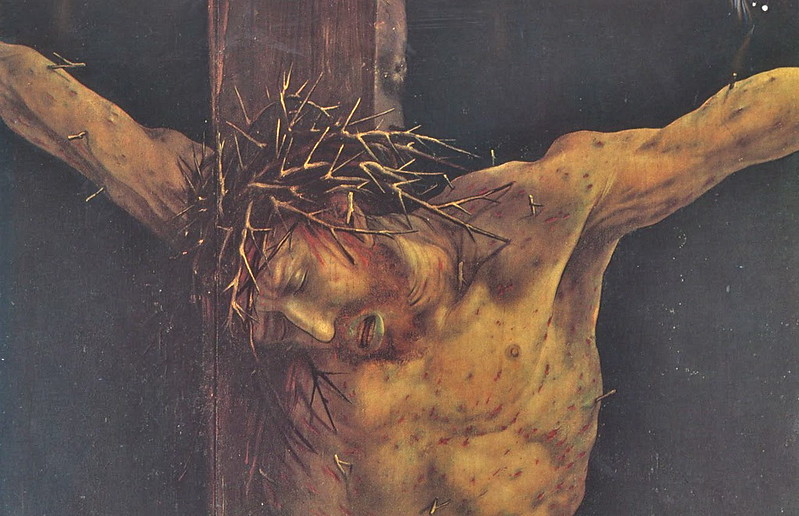The Sign That Saves The World

The Sign That Saves The World
Brian Zahnd
Look to me and be saved,
All you ends of the earth!
–Isaiah 45:22
Peri and I are on our way to speak at the Christ at the Checkpoint conference in Bethlehem and we’re spending a few days in Florence, Italy exploring the cradle of the Renaissance. Visiting the museums and art galleries, I’ve seen hundreds of crucifixion paintings, and I’ve tried to view each one with a reverent eye. I never look at depictions of Christ crucified with a jaundiced eye. Their religious nature and ubiquitous presence may illicit a yawn from the secular cynic, but not from me — I’m an incorrigible Christian. I believe the cross is where Christ saves the world. Looking at the cross with the right eye, the reverent eye of humble faith, is the locus of salvation. The cross is the sign that saves the world.
Ten years ago when I first began to connect Fyodor Dostoevsky’s enigmatic phrase “beauty will save the world” with the cross — it is at Golgotha that the ugliness of human sin is overcome by the beauty of divine love — the image of the cross as saving beauty that I most often referred to was Fra Angelico’s fresco. Today when we visited the San Marco Monastery I was able to see this fresco painted by the monk-artist Beato Angelico in 1441. As I lingered in contemplation of Fra Angelico’s Crucifixion, it prompted me to once again ask — what does this mean? Take a moment and ponder this question with me.
Read more



